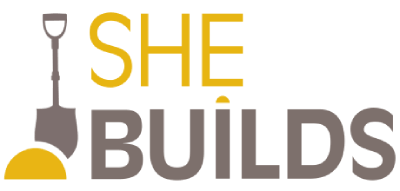Two Must Read Books: For Investors and Entrepreneurs
Episode 50: Welcome to the She Builds Show, I’m your host, Stefanie Olson. I am so glad that you’re here and that you have taken the time out of your day to listen, it means so much to me. Today, I want to cover two of the most recent books that I’ve been reading, and I want to share my insights and recommendations, because I think you will really enjoy it. The first book is called Short-Term Rental, Long-Term Wealth: Your Guide to Analyzing, Buying, and Managing Vacation Properties by Avery Carl, CEO and Founder of The Short Term Shop. And the second book that I’m reading and beyond excited to implement is called, Profit First: Transform Your Business from a Cash-Eating Monster to a Money-Making by Mike Michalowicz.
Ready? Listen in…
SHOWNOTES:
• Now, as you might know or may not know, I’m on a mission to try to increase my passive income, my cash flow through either fixing up properties and either holding them long-term and turning them into short-term rentals. Now, this book is written by Avery Carl, and it’s super great for someone who is just wanting to put their toes into gaining knowledge about short-term rentals. So, I highly recommend it if you just kind of know nothing and you really just want to start digging deeper into, what does it look like to have a short-term rental? So, what I love even more than this book is the happy business woman behind this book, I wish I could have her on the show, so Avery, Ms. Avery, if you were listening, DME, I want you on the show. Not only did she write this book, she created what is called the short-term shop, and it’s a real estate agency that only deals with investors who want to purchase short-term rentals. (01:05)
• Now they go above and beyond just being your real estate agent, once you’re in escrow, and you pass your inspections and you’ve released your inspection contingency, you go to a meeting with her husband, who does what’s called Management Monday, and they teach investors how to set up their Airbnb account, how to source local house cleaners and handyman, or handy women, and all the things that you need to get your short-term rental up and running. And they really focus on self-management of that short-term rental, they really believe that property managers really steal the profit from you, so they’re teaching self-management of the type of investment to keep more money in your pocket. Ain’t you smart? Like Girl, high five! (02:51)
• So, you may or may not know that I was an accountant for 10 plus years. I know traditional accounting, it’s called GAP accounting, profit and loss statements and balance sheets are embedded into my psyche. But most of my life intuitively, I’ve done this weird cash bucket thing that my dad always just gives me a hard time about, because I have my little buckets all over the place. I have multiple bank accounts with basically no access to myself so that I could save money for various things, but not touch it, and it works. It works well for my brain, it works well for how I’m wired. That bucket is for a vacation, that bucket is for home repairs, that bucket is for college, and something else I’ve tried but kind of struggled with is Dave Ramsey’s cash envelope system. I love the concept, and I love budgeting, but getting cash every month out of the bank is something I don’t consistently do, because let’s face it, we are a convenience type of society, and going to the bank every month to get cash is not super convenient. (05:21)
• He suggests five key bank accounts. Yes, five separate bank accounts. Here are the bank accounts, income, OPEX; which is your operating expenses, taxes, profit, and owners compensation. How it works in the book, which you must read to get all of the juicy details and get way more information on how he actually suggests you break this down, is that each time a deposit comes in, you have percentages that are assigned to each account, and so that money, the money that comes into the income account gets divided up by percentages into each bank account. Yes, you actually transfer the money into each bank you account. Let me give you an example. When a deposit comes in, you allocate 5% to profit, 35% to taxes, 10% to owners compensation and 50% to operating expenses. So that means you only get 50% of that deposit to spend on your expenses, and yes, you’re planning for your taxes, so when your taxes come, you have money in a bank account to be able to pay them. (09:00)
LINKS TO BOOKS:
• Short-Term Rental, Long-Term Wealth
• Profit First
WAYS TO CONNECT WITH STEFANIE…
• Website: https://shebuildshomes.com
• Facebook: https://www.facebook.com/shebuildsbetter
• Instagram: https://www.instagram.com/shebuilds.homes
• YouTube: https://www.youtube.com/shebuildsshow

